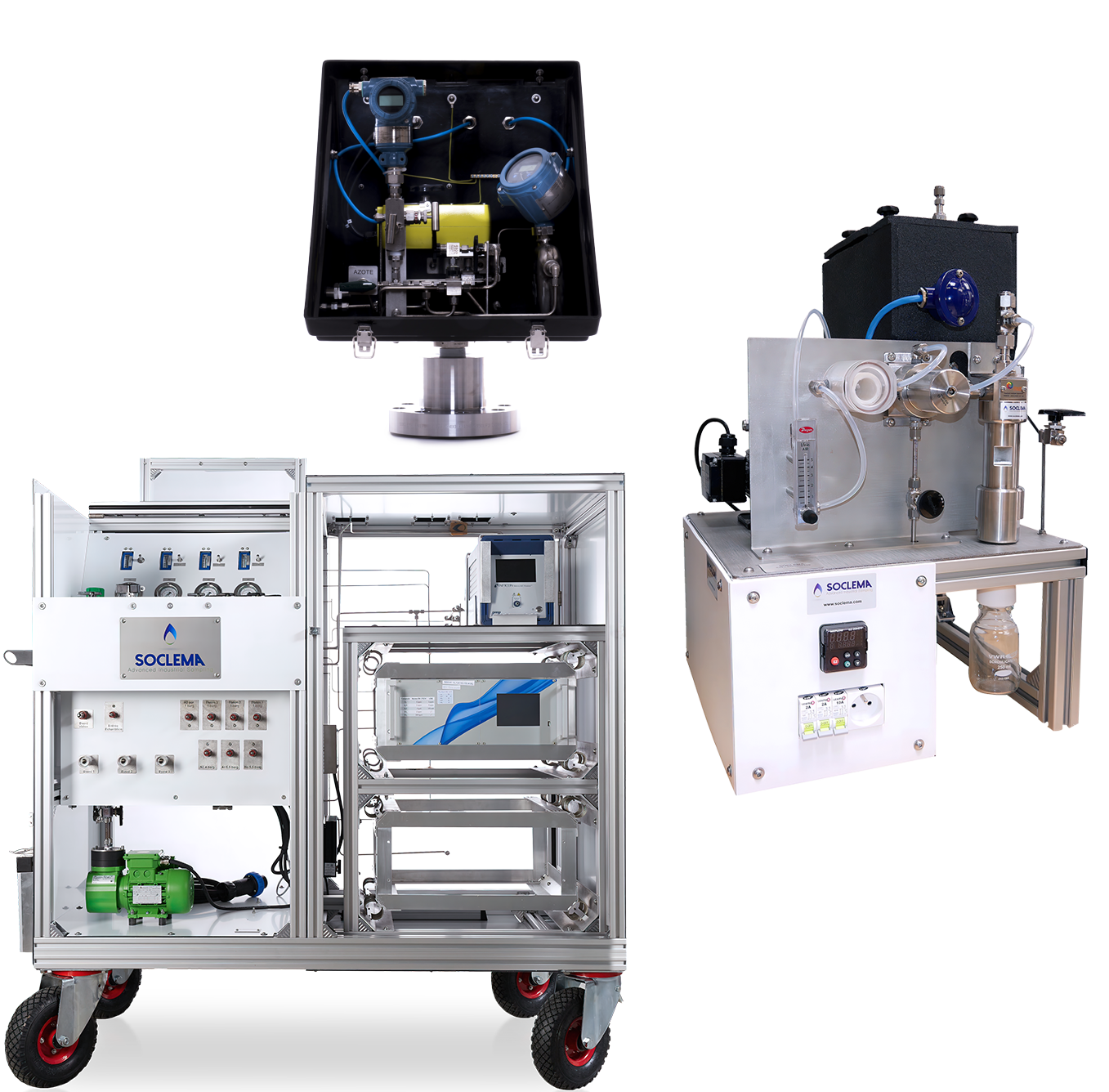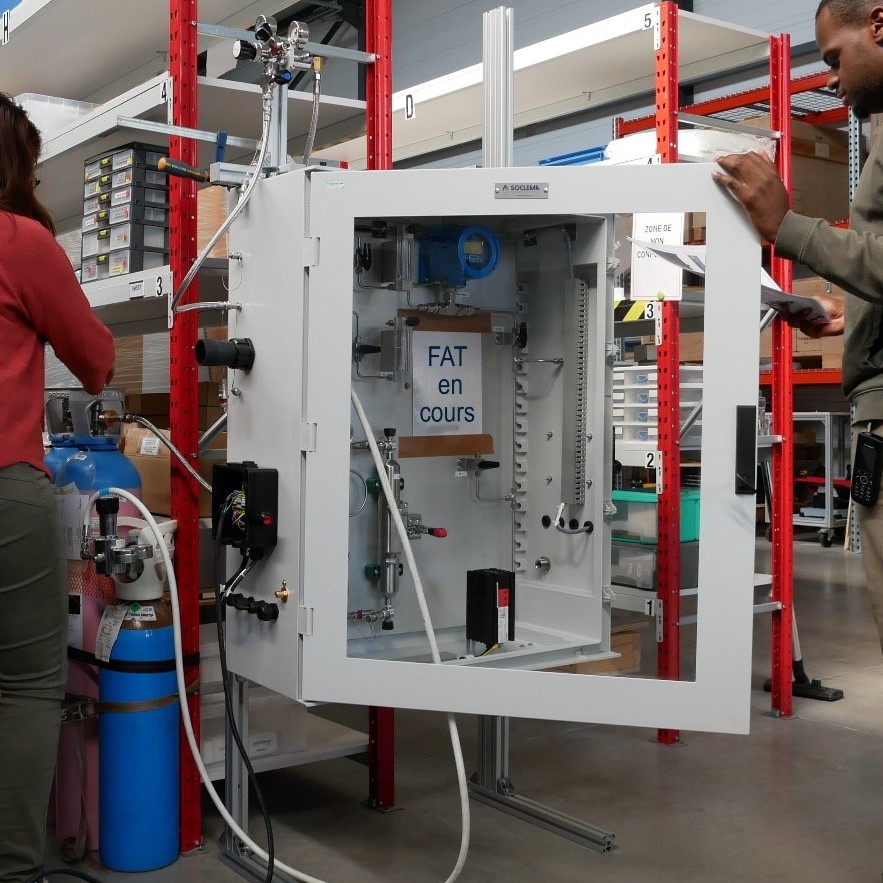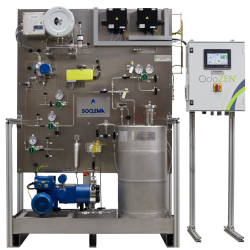ODORIZATION AND
GAS AND LIQUID SAMPLING SYSTEMS
Odorization and sampling systems
for gas and liquid analysis
SOCLEMA offers complete, innovative solutions for your gas and liquid systems, especially for renewable gases. SOCLEMA is an expert in odorization and samplingsolutions for gas and liquid analysis.
It designs and manufactures specific, customized sampling systems to ensure that the samples taken are strictly consistent with the gases and liquids to be analyzed; it installs and maintains these systems on gas pipelines or all types of industrial gas and liquid processing or storage facilities. We also distribute sampling equipment manufactured by leading brands, from GENIE sampling probes to specific sample bundle tubing for analysis.
























